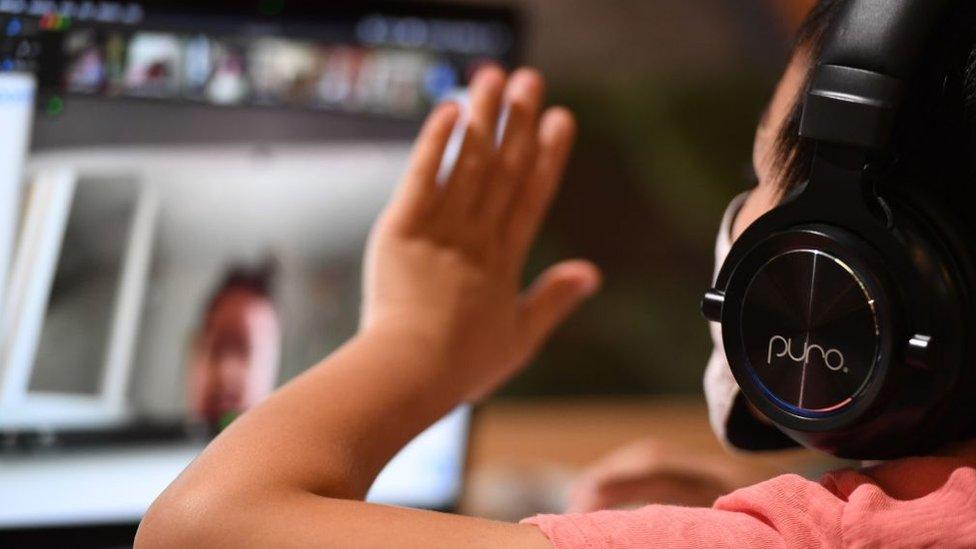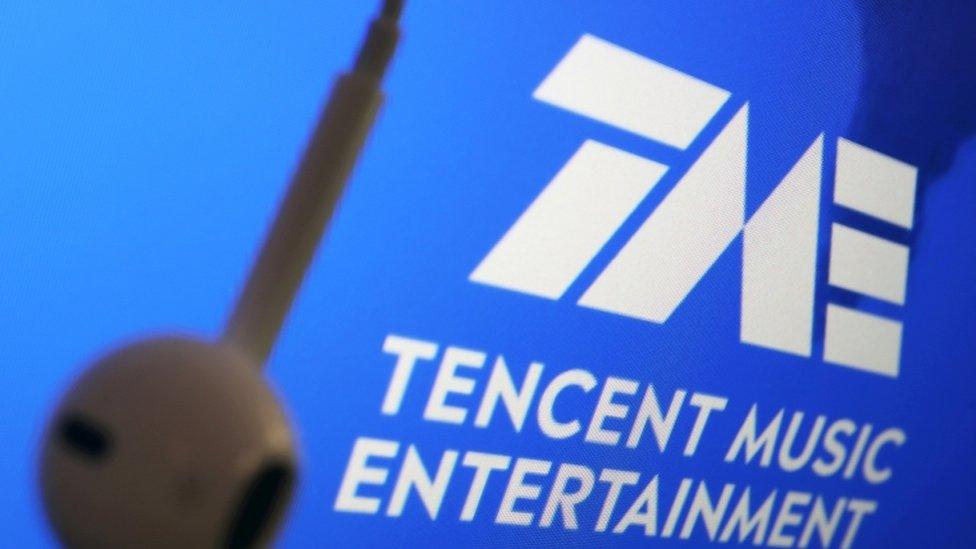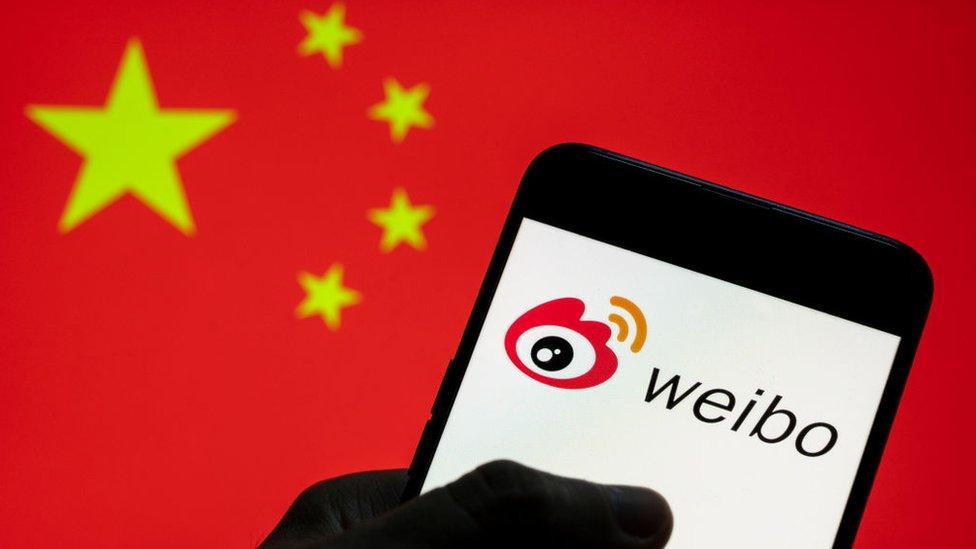Shares in Chinese online tutoring firms slump after shake-up
- Published

The major shift in policy comes as authorities try to ease the financial pressures of raising children
Shares in Chinese online tutoring firms have slumped after Beijing stripped them of the ability to make a profit from teaching core subjects.
The new guidelines also restrict foreign investment in the industry.
The major shift in policy comes as authorities try to ease the financial pressures of raising children, after China posted a record low birth rate.
It is one of the biggest ever overhauls of the country's $120bn (£87bn) private tutoring sector.
Under the guidelines, issued jointly by the General Office of the Communist Party of China Central Committee and the General Office of the State Council, all institutions offering tuition on the school curriculum will be registered as non-profit organisations.
The new rules also state: "Curriculum subject-tutoring institutions are not allowed to go public for financing; listed companies should not invest in the institutions, and foreign capital is barred from such institutions."
The statement said the move was intended "to ease the burden of excessive homework and off-campus tutoring for students undergoing compulsory education."
News of the rule changes have slammed the share prices of China's private education firms.
In Hong Kong trade, companies including New Oriental Education & Technology, Koolear Technology Holding Scholar Education and China Beststudy Education plummeted by as much as 47% on Monday.
On Friday in New York, TAL Education Group shares fell by more than 70%, while Gaotu Techedu lost 63% of its market value.
In a statement released on Sunday, TAL said it expects the guidelines "will have material adverse impact on its after-school tutoring services related to academic subjects in China's compulsory education system", without giving details of the expected extent of the effect.
The announcement comes as Chinese authorities are cracking down on a wide range of online services from ride-hailing app Didi to Tencent's music streaming platforms.
Last week, China's internet watchdog, the Cyberspace Administration of China (CAC), ordered some of the country's biggest online platforms to remove inappropriate child-related content and fined them.
In a statement, the CAC said its actions against Kuaishou, Tencent's messaging tool QQ, Alibaba's Taobao and Weibo "focused on solving seven types of prominent online problems that endanger the physical and mental health of minors".

You may also be interested in:
India teachers get creative as Covid shuts schools
Related topics
- Published26 July 2021

- Published21 July 2021

- Published6 July 2021
